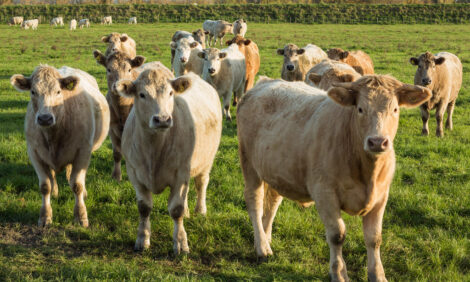



U.S. Japan Have "Shared Awareness" Over Safety Of U.S. Beef
JAPAN - Japan and the U.S. have a "shared awareness" on the safety of U.S. beef after a two-day technical meeting, a Japanese official said Aug. 3, as Washington seeks relaxed import restrictions imposed over bovine spongiform encephalopathy concerns.The two sides concluded a two-day, closed meeting of officials on Aug. 3 that focused on fresh data provided by the U.S. at Japan's request on cattle feed and the surveillance system in the United States, according to Agriculture Ministry official Toshio Katagai.
The Japanese team was basically satisfied that it had received the information it needed from the U.S. side, Katagai said.
"Health and agriculture officials will have to evaluate the data further before any next steps can be taken, but basically we now have a shared awareness of the situation," he said.
This week's meeting--a follow-up to previous talks held in Tokyo in June--came as South Korea effectively suspended U.S. beef imports, saying a recent shipment was found to have contained banned parts. South Korea has asked the United States to explain why a banned vertebral column was found in a recent 18.7 ton shipment and to come up with preventive measures.
In May, the World Organization for Animal Health ruled that the United States was a "controlled risk nation"--a country that can export beef from cattle of any age. The U.S. has cited that report in urging Japan to review its policy.
Source: High Plains Journal


